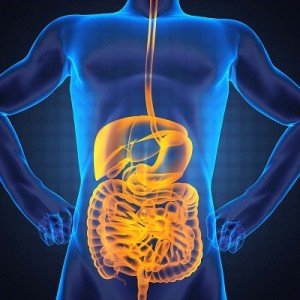by Dr. Chantal Isabela Charo. Oh no! Artificial sweeteners are destroying my gut microbiota!! Wait, what’s a microbiota??
Before you blindly cast your verdict on artificial sweeteners read my article below. I explain everything you need to know about artificial sweeteners, your gut health, the study that went viral and what you need to do to keep your gut healthy without having to give up your diet coke.
Every month or two, we watch the emergence of a new health trend that goes viral, whether it’s the gluten free diet hype, oil pulling, Chia seeds, Detox diets, the list goes on and on. Feeling out of date? Log on Instagram or Facebook and look at some model’s profile, you’ll find the latest pseudo-scientific findings guaranteed to catch your attention and sell you their product. You know what I am talking about; we have all been guilty of following a health fad for one reason or another. This is one of my biggest frustrations as a research scientist, also involved in the clinic with patients. Some diet trends are a “cute” way to keep us motivated when we feel like we are about to fall off the diet wagon. There are the diet trends that people follow when they want to find an excuse to why they are not losing weight or reaching their fitness goals, “ I am bloated after eating a huge bowl of pasta, cheese preceded by Olive Garden’s bread basket, darn it! It’s the gluten. I am going to go on a gluten free diet tomorrow”. Whilst the majority of diet trends simply don’t work. Trendy diets are just a trend, I try to remind my patients and friends that all the time. Now, this last category of diet trends is my biggest pet peeve. It’s the type of trend Dr. Mercola and his ilk spread like soft butter on hot French bread.
Can you believe that Mercola’s latest posts are that artificial sweeteners are doing more harm than sugar to diabetics? Now that makes about as much sense as putting lipstick on a pig and having the little oinker enter a beauty contest. These falsehoods gives a patient the false hope that by radically changing what has been medically shown for years to work, and replacing it with a hypothesis that has no scientific data, they are cured. That, I cannot deal with. This can cause serious health issues including death.
This month’s latest health trend is a scientific study by Dr. Eran Elinav’s research group, published in a top tier journal called Nature. The study suggested a correlation between artificial sweeteners and gut health. They found that mice who were fed a diet high in artificial sweeteners such as Splenda and sweet n’ low were more likely to suffer from a disequilibrium in intestinal flora. Did you know? There are about 100 trillion bacteria in our intestines. Some are good bacteria, aiding in our digestive health and metabolism, while others are bad bacteria secreting harmful metabolite. The ratio of good gut bacteria to bad gut bacteria is very important to our digestive health; however, there is no definite connection between gut health and diabetes. Sadly, the media over extrapolated the results of this scientific study to generate inaccurate exaggerated and catchy titles in a desperate attempt to get your attention.
Here’s what you need to know about artificial sweeteners, Dr. Eran Elinav’s Study, your gut bacteria and diabetes. First, let me break down the results of the study. What the Weitzmann group actually did was as follows; they studied the effect of a diet rich in sucralose (Splenda), aspartame, saccharin (Sweet n’ Low) and glucose on metabolic abnormalities on microbiota and the resultant effects on glucose metabolism. They found that artificial sweetener consumption alters the good to bad bacteria balance and the effect caused by saccharin (sweet n’ low) was the most pronounced. Data was generated over a period of 10 weeks. I would like to emphasize this point. They measured the effect of a normal, FDA approved dose of a diet that contains artificial sweeteners, such as Splenda and sweet n’ low, over a short period of 10 weeks, and found a correlation between glucose intolerance, gut bacteria balance and diabetes. Based on their study, the majority of the population that has consumed artificial sweeteners over a period of 10 weeks or more should have glucose intolerance, a lack of good bacteria, or worse diabetes, which is not quite the case. Without looking at the paper or having any science background, simply stop for a second and think. How well do those scientific lab findings coming a from a top notch lab apply to real life? Note that preliminary findings done in mice are important. But we ultimately need confirmation in well done human clinical trials.
Please read this over and over. This study does not prove that if you are adding artificial or zero calorie sweeteners to your diet you will get diabetes. There are thousands of studies done over decades and decades clearly showing that too much sugar, lack of exercise, and a corpulent lifestyle contributes mightily to diabetes. There are thousands of studies who have shown the beneficial effects of substituting sugar with artificial sweeteners. Diabetics are now able to add to their diet foods that are artificially sweetened and enjoy the sweet taste of foods they couldn’t before. The problem we are facing with obese and overweight patients is not consumption of Splenda or sweet n’ low, or even diet coke. The problem we are facing is gluttony. The “oh, it’s only 0 calories? Then, Let me have 10 diet cokes today, and a whole jar of sugar free jam” syndrome. The “I want everything I can have and more” syndrome. The “I am fat because something is going on inside of me and not because I overeat”. This is what we need to work on curing first, food overconsumption, before jumping to the conclusion that to get rid of obesity we need to replace diet coke with a regular coke.
Are you worried about your intestinal health? The good thing is that you can reset your gut bacteria, without giving up artificial sweeteners.
Here are some of my tips to improve your gut health
1- Eat food based probiotics. They increase the number of good bacteria.
2- Add dairy to your diet. Milk and yogurt are rich in bifidobacteria , a type of bacteria that releases acidic substances, bad bacteria cannot survive in.
3- Eat food based prebiotics. Those foods contain non digestible carbohydrates such as asparagus, leeks, onions, garlic and whole grains.
4- Reduce fatty food consumption. Fatty foods can damage gut lining which allows harmful metabolites secreted by bad gut bacteria to be leaked into the blood stream and cause inflammation.
5- Get rid of stress. Stress increases inflammation and reduces your immunity making your body more prone to foreign invasion by bacteria and viruses.
6- Beware of antibiotics. Antibiotics kill good and bad bacteria. When good bacteria are killed, you risk having yeast infections, skin rashes and allergic reactions. So if you are taking an antibiotic course, add a live probiotic supplement after consulting with your physician.
Biography – Dr. Chantal Charo is a metabolism expert and sports nutritionist based in  Miami, FL. She received her PhD from the prestigious University of Texas Houston Health Science Center and has spent years researching metabolic disturbances and inflammation at the MD Anderson Cancer Center. Dr. Charo did her post-doctoral studies on the metabolic functions of estrogen receptor and adipose tissue regulation. And is an assistant professor who teaches undergraduate and graduate medical physiology and anatomy courses. Aside from being actively involved in both research and academics, Dr. Chantal Charo has dedicated herself to promoting scientific nutrition and fitness by being a full time writer and a clinical sports nutritionist. As a clinical sports nutritionist, Dr. Chantal Charo has worked with numerous celebrities and athletes ranging from NBA players, body building competitors and casual individuals wanting to lose weight and get healthy. Dr. Chantal Charo has also launched www.DrCharo.com, a virtual online sports nutrition clinic with a team of highly trained nutritionists, celebrity trainers and chefs to answer all your diet, fitness and supplement questions.
Miami, FL. She received her PhD from the prestigious University of Texas Houston Health Science Center and has spent years researching metabolic disturbances and inflammation at the MD Anderson Cancer Center. Dr. Charo did her post-doctoral studies on the metabolic functions of estrogen receptor and adipose tissue regulation. And is an assistant professor who teaches undergraduate and graduate medical physiology and anatomy courses. Aside from being actively involved in both research and academics, Dr. Chantal Charo has dedicated herself to promoting scientific nutrition and fitness by being a full time writer and a clinical sports nutritionist. As a clinical sports nutritionist, Dr. Chantal Charo has worked with numerous celebrities and athletes ranging from NBA players, body building competitors and casual individuals wanting to lose weight and get healthy. Dr. Chantal Charo has also launched www.DrCharo.com, a virtual online sports nutrition clinic with a team of highly trained nutritionists, celebrity trainers and chefs to answer all your diet, fitness and supplement questions.

